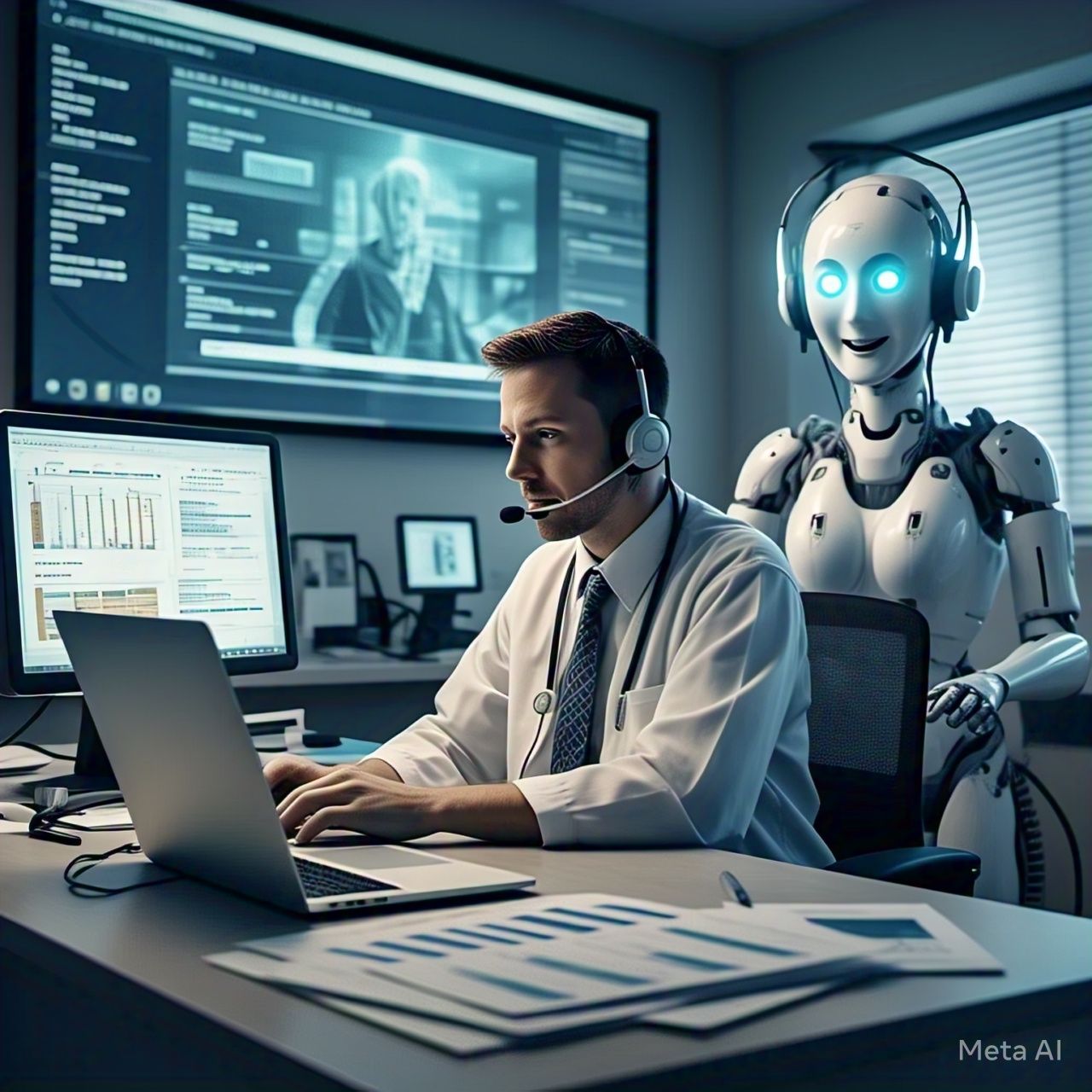Table of Contents
- Introduction
- The Role of AI in Healthcare Customer Service
- AI Chatbots for Instant Assistance
- AI-Powered Virtual Assistants
- AI in Call Centers
- Advantages of AI in Healthcare Customer Service
- 24/7 Availability
- Reducing Wait Times
- Cost Efficiency
- Improved Patient Satisfaction
- AI in Help Mode: Real-World Applications
- Chatbots in Telemedicine
- Virtual Nursing Assistants
- AI-Powered Chat Support in Healthcare Portals
- Challenges and Ethical Considerations
- Privacy and Data Security Concerns
- The Need for Human Oversight
- AI’s Limitations in Emotional Intelligence
- Future of AI in Healthcare Customer Service
- Conclusion
- FAQs
- References
1. Introduction
Healthcare customer service plays a pivotal role in patient experience, satisfaction, and overall quality of care. With increasing patient inquiries, appointment scheduling, and administrative workloads, healthcare providers are leveraging artificial intelligence (AI) in help mode to optimize and enhance customer service efficiency.
AI-powered solutions are streamlining appointment scheduling, reducing wait times, automating responses, and enhancing patient communication. AI chatbots, virtual assistants, and automated systems are transforming healthcare by providing 24/7 support, improving response times, and ensuring a seamless patient experience.
In this article, we will explore the growing role of AI in healthcare customer service, its numerous advantages, challenges, and what the future holds for AI-powered healthcare interactions.
2. The Role of AI in Healthcare Customer Service
AI in Help Mode refers to the integration of machine learning (ML), natural language processing (NLP), and automation technologies to enhance interactions between healthcare providers and patients.
1. AI Chatbots: The Future of Instant Healthcare Assistance
AI chatbots are intelligent virtual assistants designed to handle routine inquiries, appointment scheduling, symptom checking, and patient education.
- Chatbots provide instant responses to common medical queries.
- Patients can schedule appointments, access test results, and receive prescription reminders.
- AI-driven chatbots improve the efficiency of healthcare services by reducing administrative burdens.
2. Virtual Nursing Assistants
These AI-powered tools provide round-the-clock patient support and assistance by:
- Reminding patients to take their medication.
- Monitoring vital signs through wearable devices.
- Providing health advice based on symptom analysis.
3. AI-Powered Healthcare Call Centers
AI is also revolutionizing call centers by automating responses to frequently asked questions, routing patient inquiries to the right department, and helping human representatives provide faster and more effective assistance.
3. Advantages of AI in Healthcare Customer Service
1. 24/7 Availability for Patient Queries
AI-driven chatbots and virtual assistants can respond instantly to patients at any time, reducing dependence on human agents.
2. Reduced Wait Times
AI eliminates the need for long call waiting times by quickly answering common patient questions and automatically scheduling appointments.
3. Cost Efficiency
With AI handling routine queries, healthcare providers can reduce staffing costs while maintaining high-quality customer service.
4. Improved Patient Satisfaction
- AI ensures patients receive instant and accurate information.
- Personalized AI interactions improve patient engagement and health outcomes.
- AI chatbots help streamline administrative tasks like insurance verification and medical record access.
3. Household AI with Military Origins: Case Studies
Case Study 1: AI Chatbots in Telemedicine
- Many healthcare organizations use AI-powered chatbots to help patients schedule appointments, receive health advice, and manage chronic conditions.
- Companies like Ada Health, Babylon Health, and Buoy Health have developed AI chatbots that provide medical guidance using NLP.
4. AI-Powered Personal Healthcare Assistants
Virtual health assistants, like Apple’s Siri, Amazon’s Alexa, and Google Assistant, can help manage medications, remind users of appointments, and even call emergency services in case of distress.
5. AI and Smart Surveillance in Hospitals
- AI-driven cameras and sensors monitor hospital wards and home care settings, detecting signs of distress and emergencies.
- Some systems use machine learning to predict patient deterioration and alert healthcare providers in real time.
5. Challenges of AI in Healthcare Customer Service
1. Data Privacy and Security Concerns
AI systems collect and store sensitive patient data, which raises concerns about data breaches, cyber threats, and unauthorized access.
2. The Need for Human Oversight
AI can enhance customer service but cannot replace human empathy, complex decision-making, or emotional intelligence.
3. Risk of Misdiagnosis or Incorrect Information
AI chatbots rely on data, but they can misinterpret symptoms or provide incorrect advice, leading to health risks.
4. Ethical and Regulatory Challenges
- Bias in AI algorithms may result in incorrect treatment recommendations.
- Legal liability concerns arise when AI makes medical errors.
5. The Future of AI in Healthcare Customer Service
As AI continues to advance, its role in healthcare customer service will likely expand. Here are some future developments:
- Advanced AI assistants: More human-like and emotionally intelligent virtual assistants will enhance communication between healthcare providers and patients.
- Integration with Wearable Tech: AI will play a greater role in analyzing data from wearables, sending real-time alerts to patients and healthcare providers.
- Personalized AI health coaches: These assistants will provide tailored health recommendations based on an individual’s medical history and lifestyle.
- Blockchain for data security: Future AI systems will likely leverage blockchain technology to enhance the security and privacy of patient data.
- Predictive AI for proactive healthcare: AI will predict health issues before symptoms arise, allowing for early intervention and personalized care plans.
FAQs
1. Can AI replace human healthcare professionals?
No, AI cannot replace doctors and nurses, but it can enhance healthcare delivery by automating administrative tasks and providing quick and accurate information to patients and providers.
2. Is AI in healthcare customer service secure?
Yes, most AI-driven healthcare systems use encryption, authentication protocols, and cybersecurity measures to protect patient data. However, ensuring compliance with HIPAA and GDPR is crucial.
3. How does AI help in appointment scheduling?
AI-powered tools can automate appointment scheduling, reducing human error, avoiding scheduling conflicts, and sending reminders to ensure patients don’t miss visits.
4. Can AI completely replace human healthcare representatives?
No, AI can assist but cannot replace human customer service agents, as human empathy and critical thinking are essential for handling complex medical concerns.





